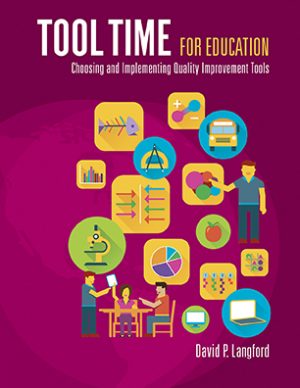Teacher Evaluation and Quality Learning
- David Langford
- Business, Education, General
- 0 Comments

I have had several people contact me about how to approach teacher evaluation in a Quality Learning context, so I decided to make it the subject of a newsletter. This is a hot topic, especially in the United States, since state and federal grants and funding are now requiring teacher evaluation. I don’t have any quick fixes to this dilemma, but I do think there are three concepts to consider when modifying or creating teacher evaluation systems.
First, understand that you will never rate and rank your way to Quality Learning. Yes, I know many people with good intentions support the idea of rewarding the best and getting rid of the worst performers, but even if you do this well you are still stuck with the system that produced the current situation. Ratings and rankings of teachers is not a method of improvement. Neither is grading students. At best, ranking methods simply let you know how bad or good a situation may be in light of the current system. If at the end of a teacher evaluation process you discover that 10% of your teachers are distinguished, 60% are proficient and the rest are lower, so what! Administrators will tell you they already knew this. Evaluators typically rely on inspection, which is fraught with variation. Students, and colleagues since they see each other daily, could help immediately identify exactly who the top performing teachers are — just ask them.
Second, determine what will happen after the evaluation process. Is your method of system improvement simply to get rid of teachers with low ratings? Is it to reward the best performers? This is a very costly method of improvement. You may be getting rid of a teacher or teachers who could have become great but, through no fault of his/her own, was not fortunate enough to have received good training, modeling and coaching. You may be trying to get rid of one teacher through ranking and rating and simply replace them with someone who is less qualified. It is a risky game of chance.
Third, the time spent ranking teachers is taken away from time spent improving teacher training or the system itself. How does your teacher evaluation system contribute to improving learning for students?
These are some of the major problems with Teacher Evaluation, and of course there are other concepts to consider when evaluating your teachers. So, what can be done? Here are some points to consider when thinking about improving teacher performance:
- Recognize that all teachers can and need to improve. Even the best can get better.
- Create a teacher performance system through which, over time, virtually anyone can become a great teacher. Include leadership, coaching and support as a component of the performance evaluation. e teachers need to be able to expect support of their administrators and understand how this will be measured.
- Stop thinking in terms of evaluation, and instead think about creating continual feedback loops. People respect feedback; they do not respect evaluation (unless you are the winner). Provide feedback more frequently so improvement processes can be reviewed and modified as needed.
- If you must rate and rank, do it quickly and efficiently, then get on with the job of improving the system. Teachers should have the ability to rate and rank themselves — people are usually tougher on themselves than others are on them.
- Dr. Deming often said, “There is no substitute for knowledge.” What knowledge is necessary to become a great teacher? Define this with your teachers. By what method or pathway may they become great? What is your role as the administrator in leading your staff in improvement?
I know it is not easy to create a system of thinking and learning in a company, hospital or school. It is much more common to create a system of reward and punishment through ranking and rating and to place blame on individuals for their poor performance, rather than the system.
Learn to break out of conformity and you will see levels of performance emerge that were never thought possible in the old system.
-

Introduction to Quality Learning and PDSA
$497.00 Select options This product has multiple variants. The options may be chosen on the product page -

Tool Time for Education
$75.00 Add to cart -

Tool Time for Healthcare
$75.00 Add to cart









